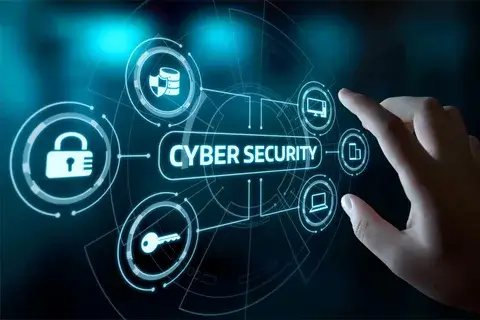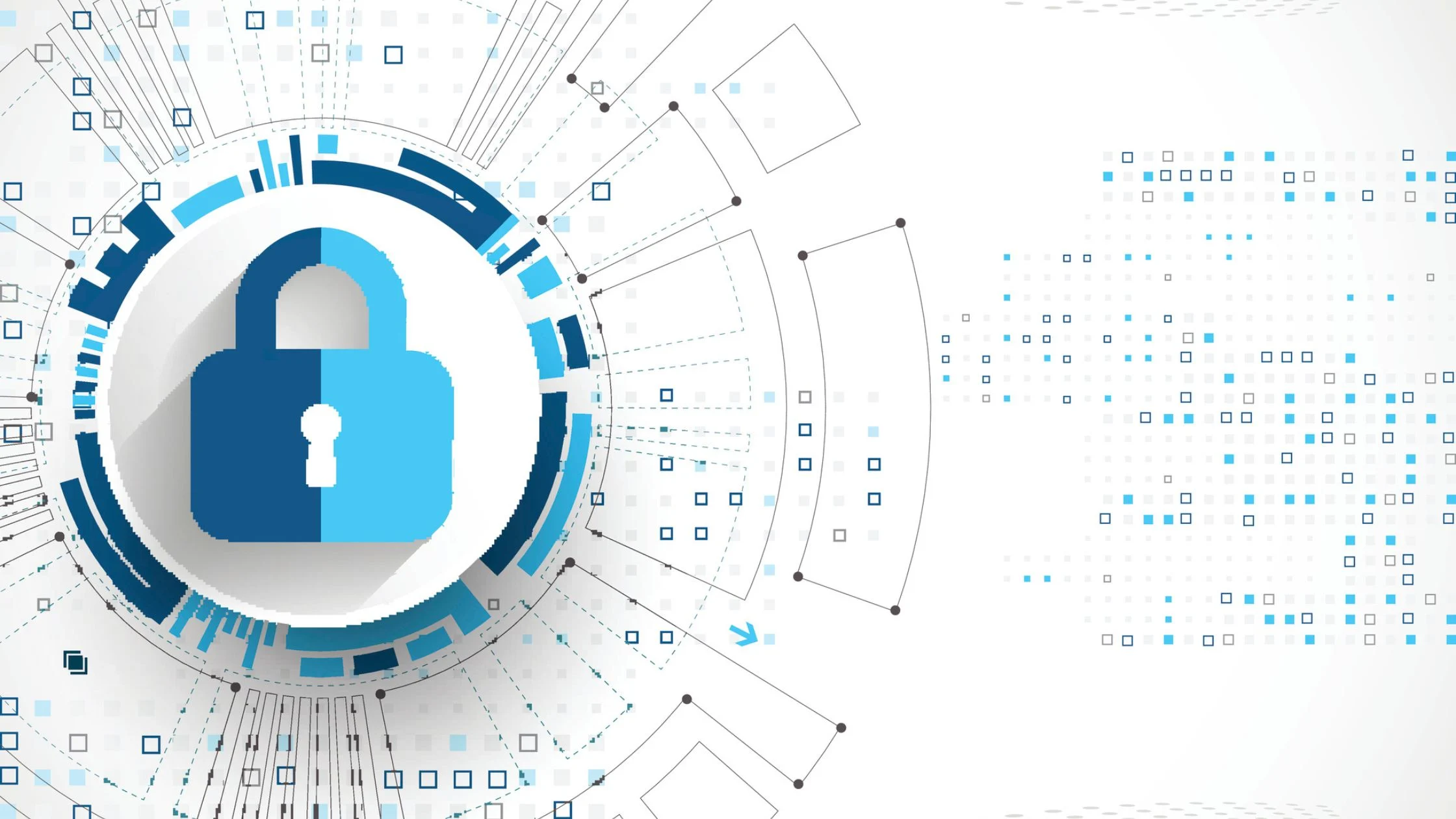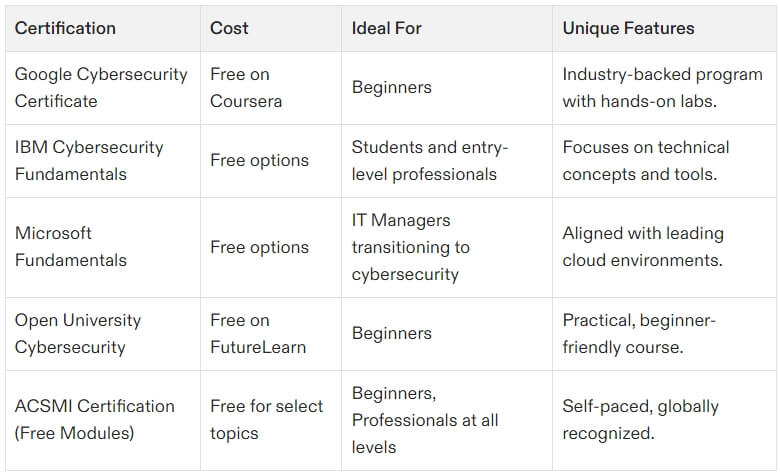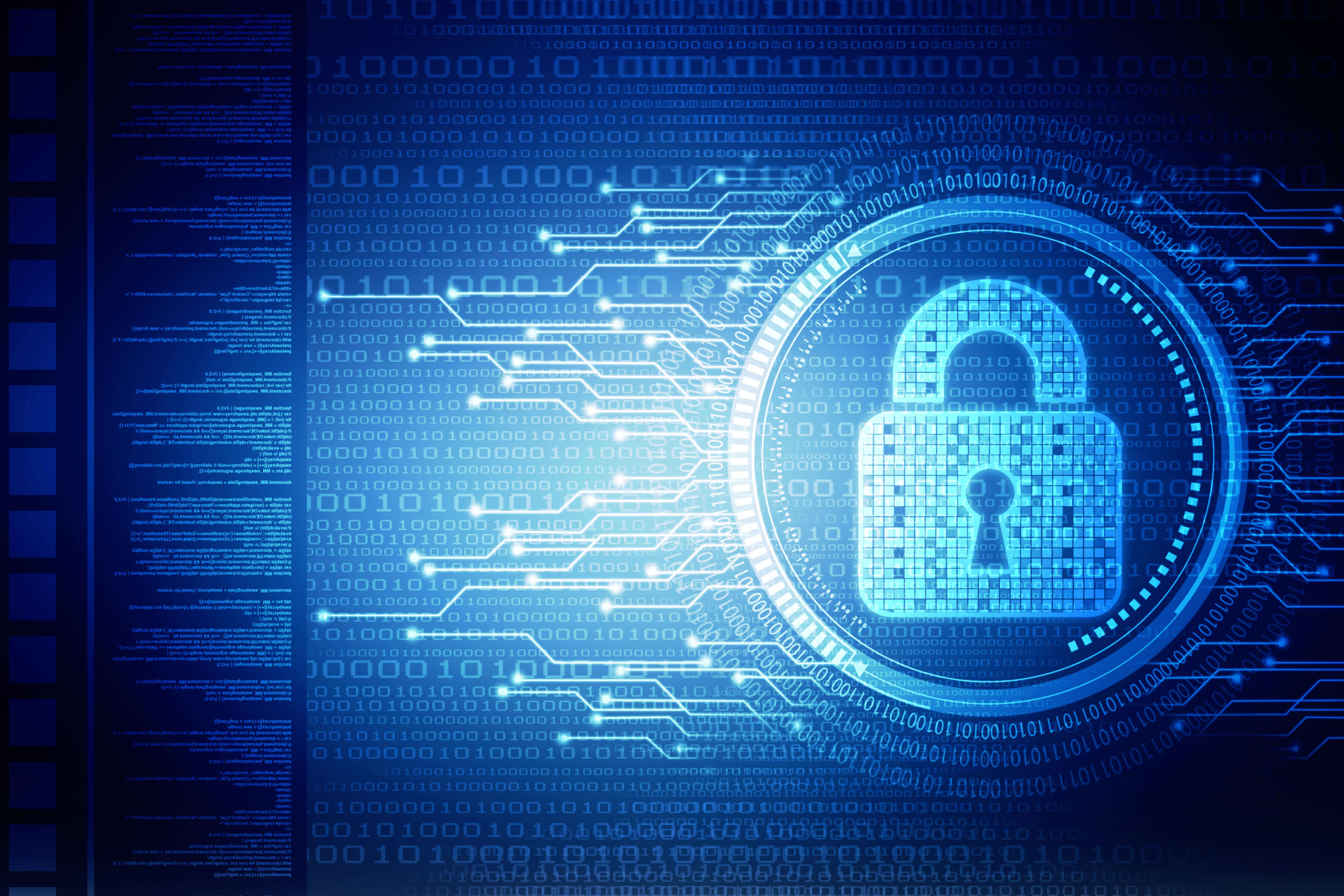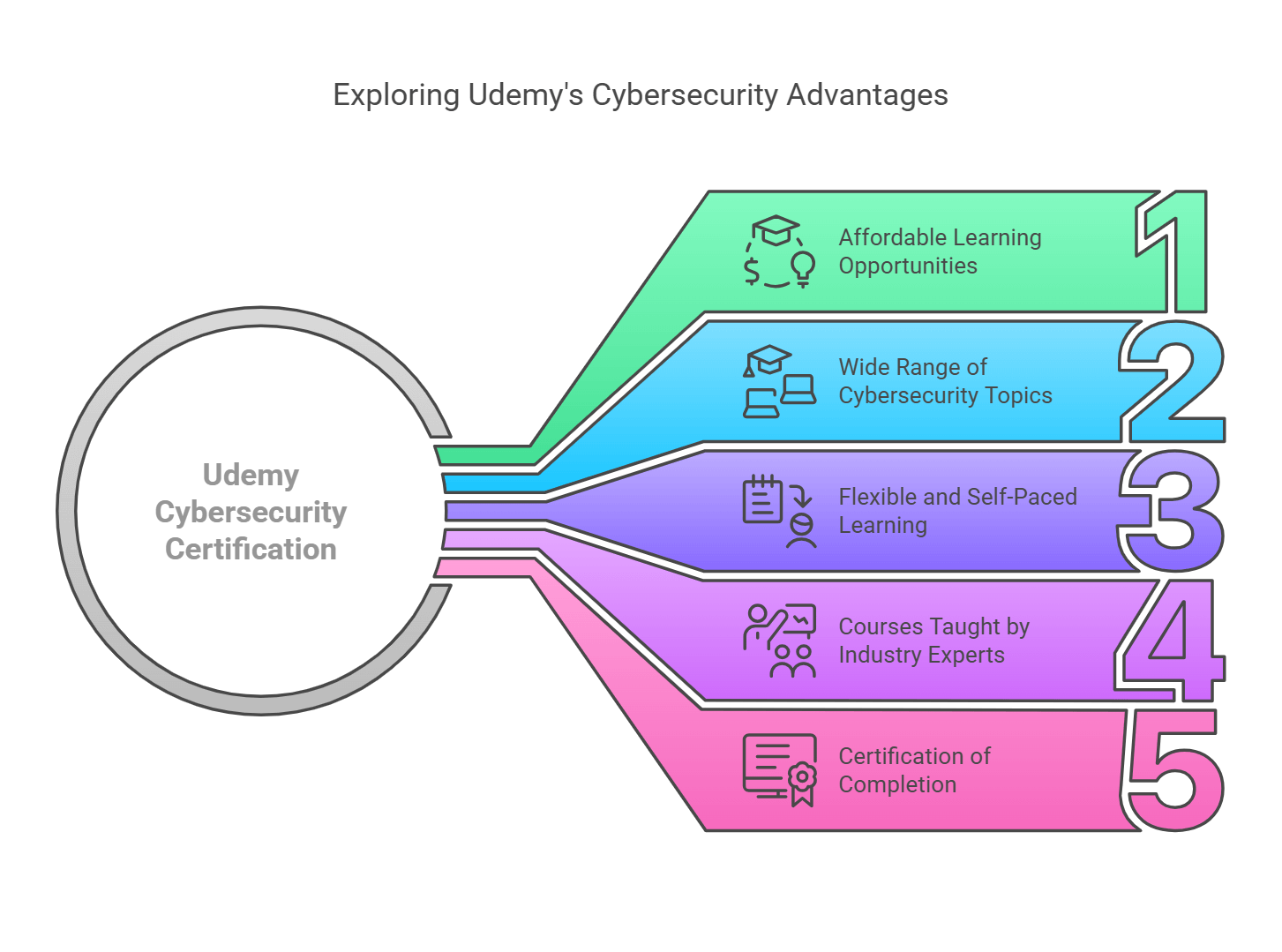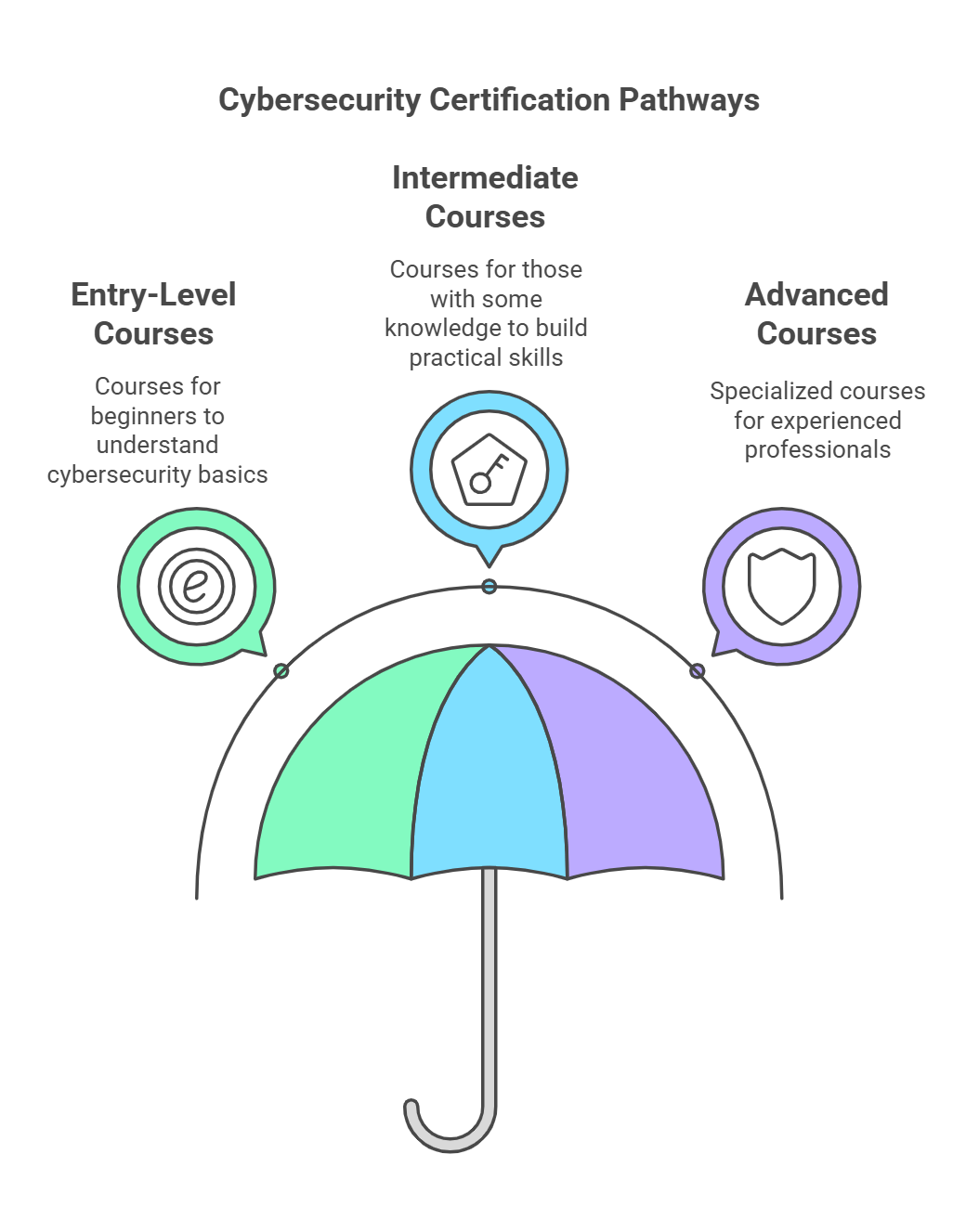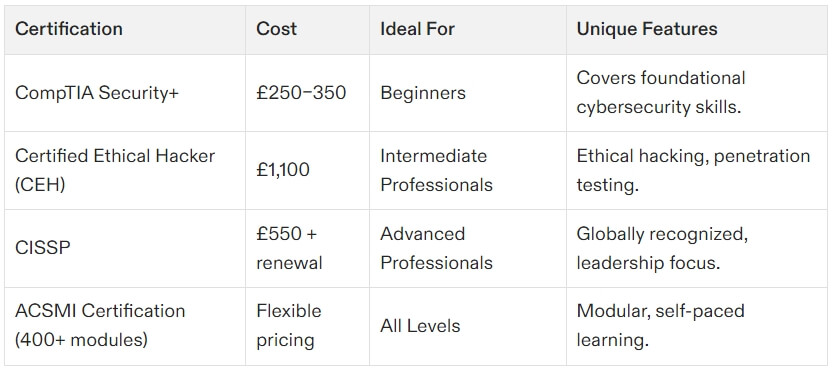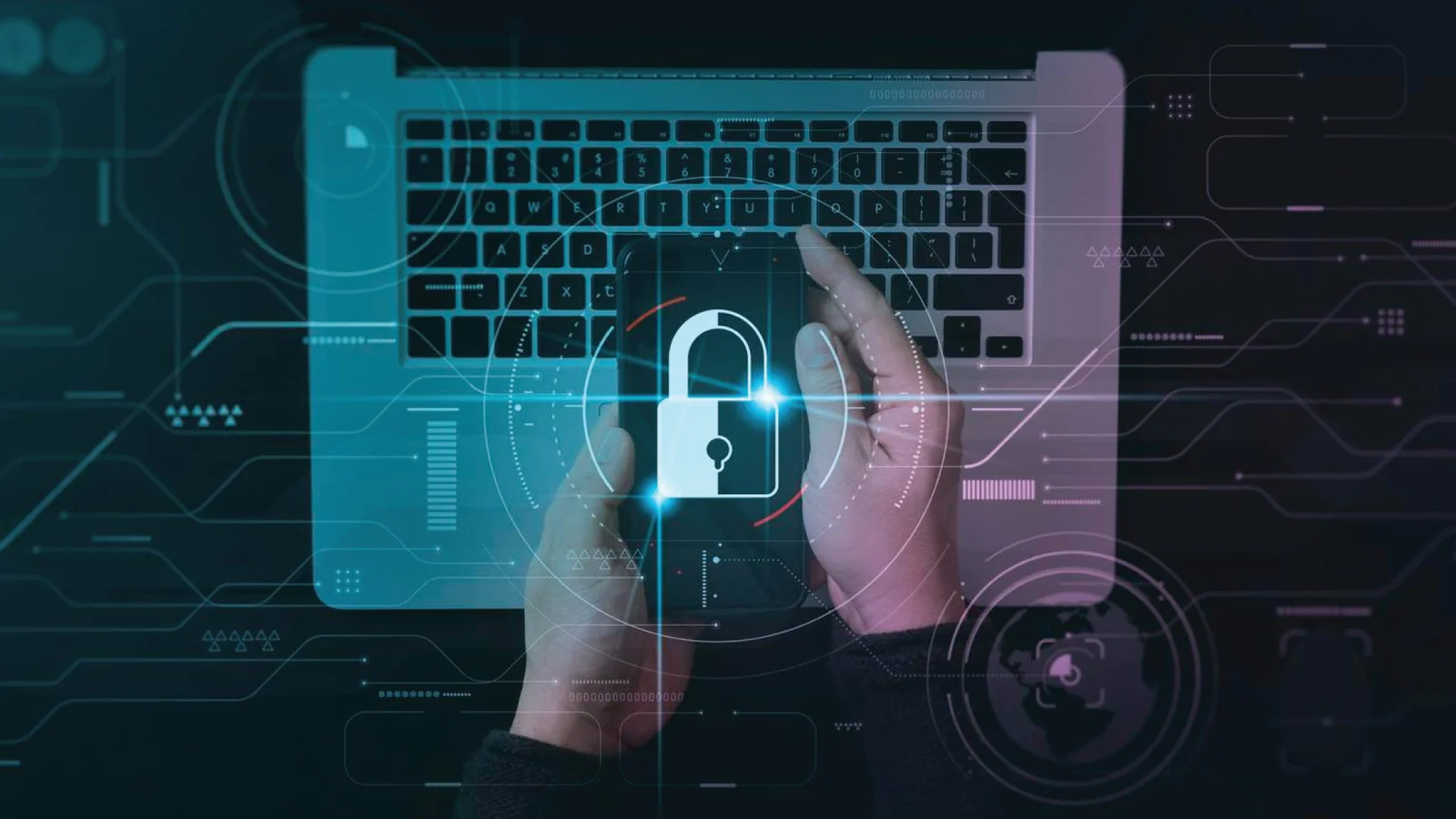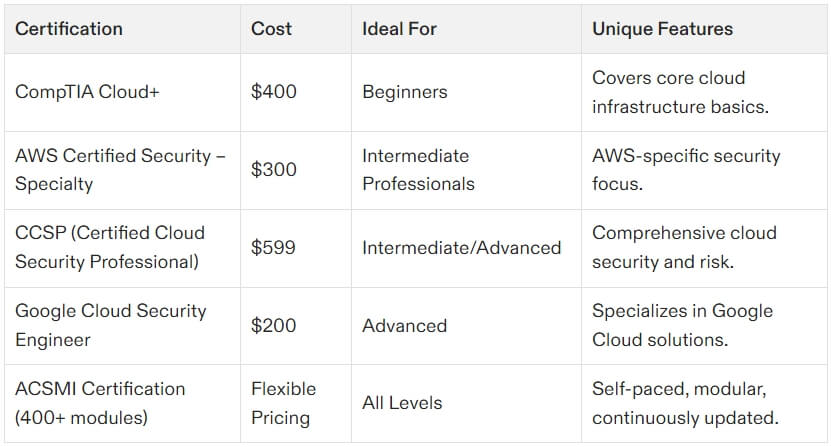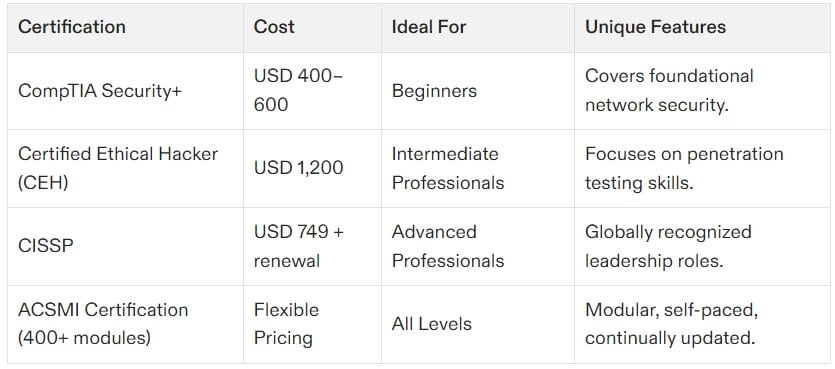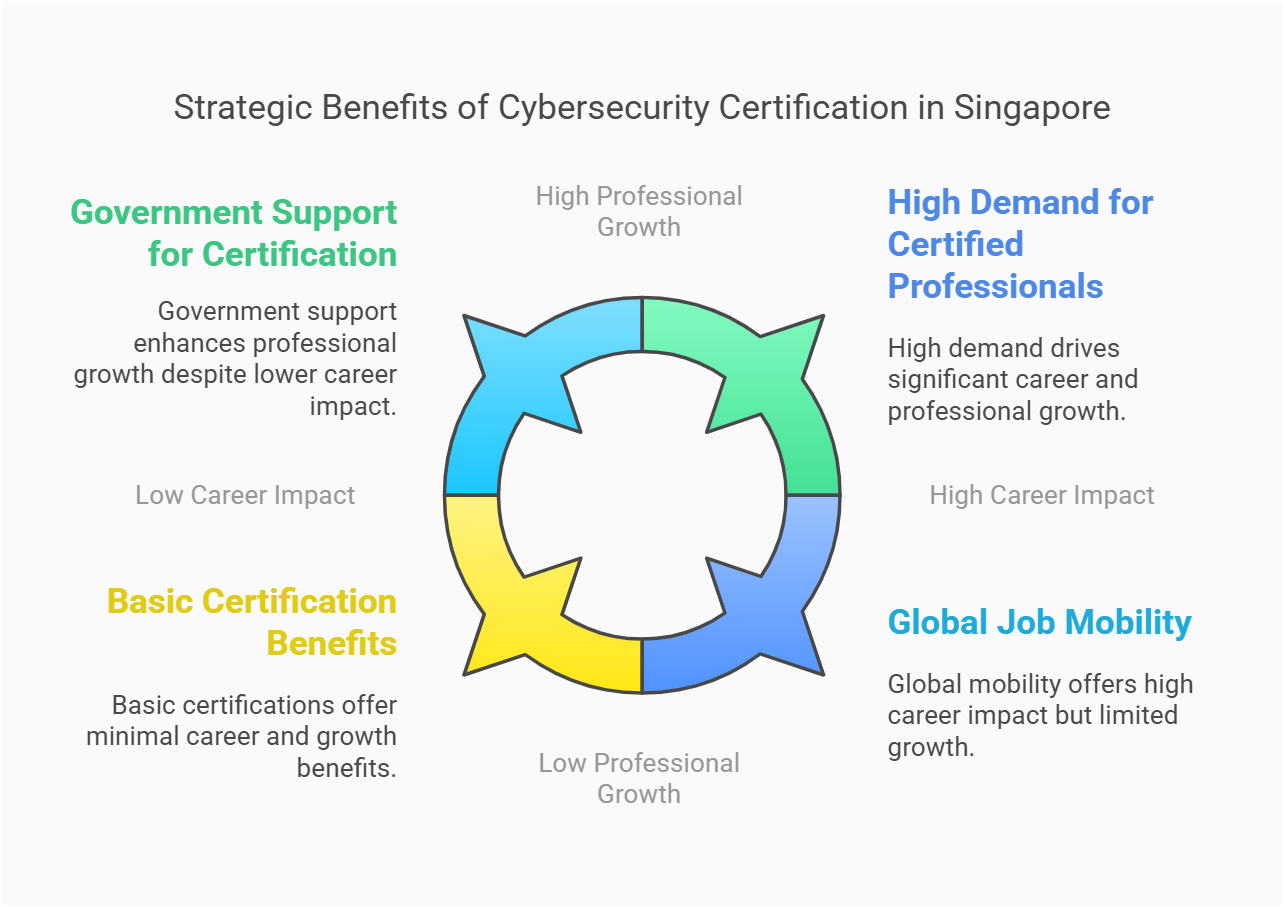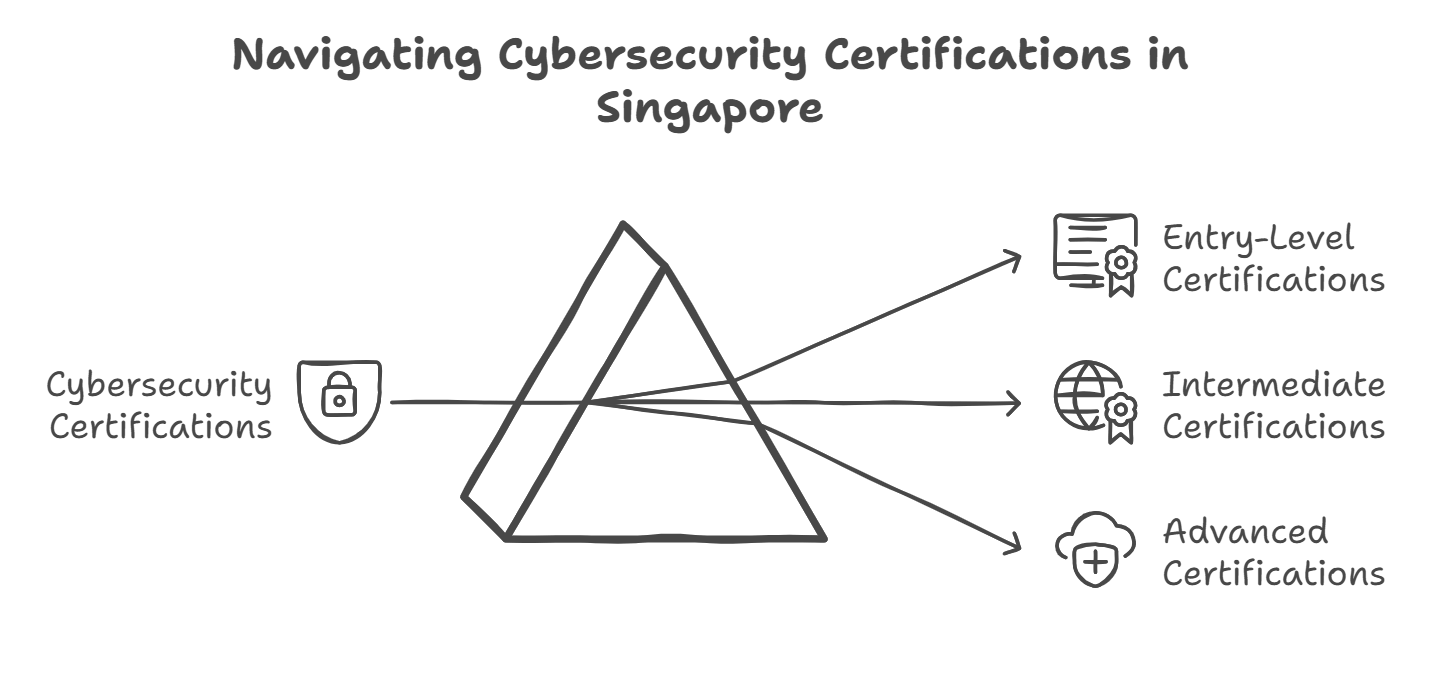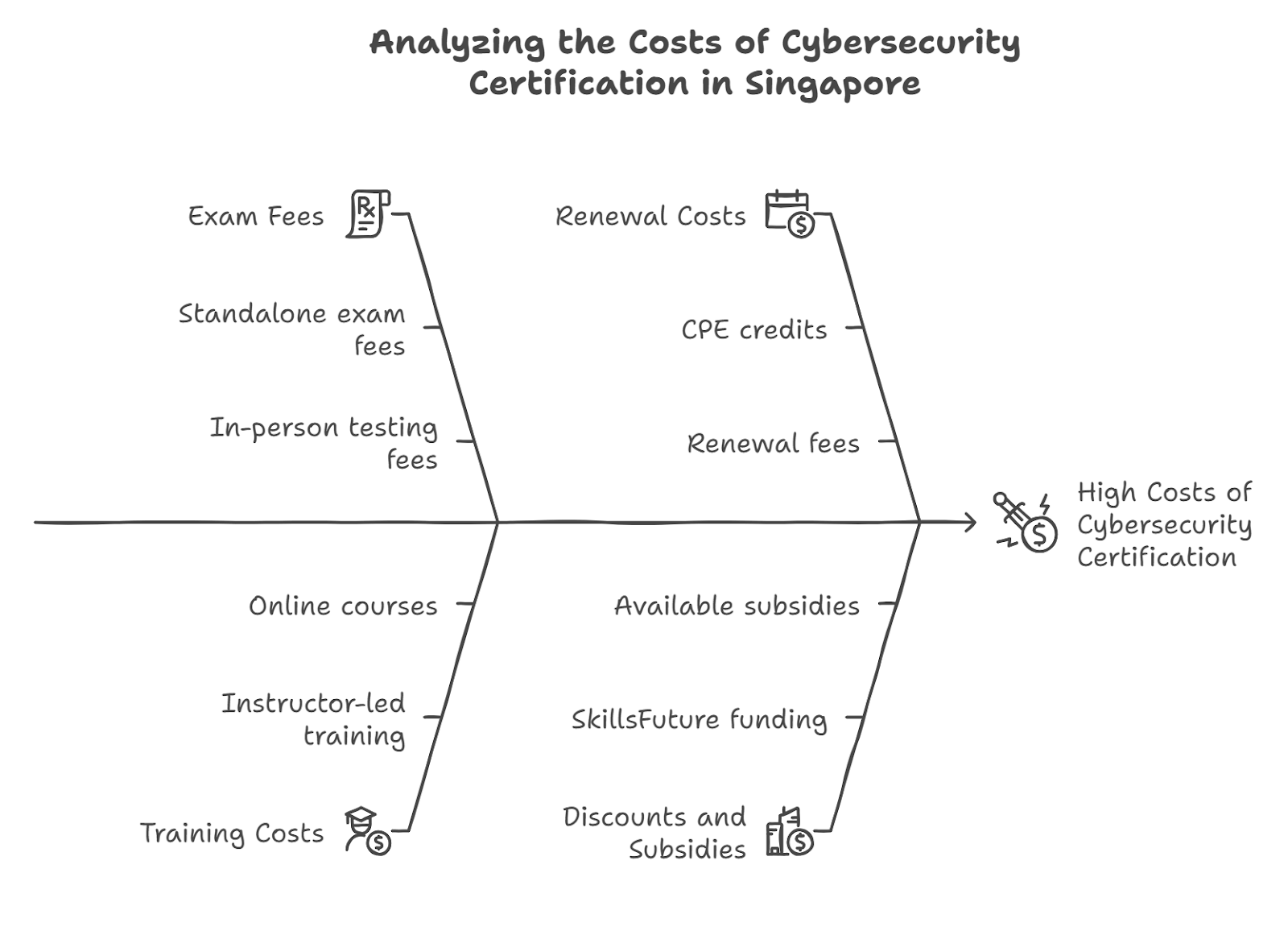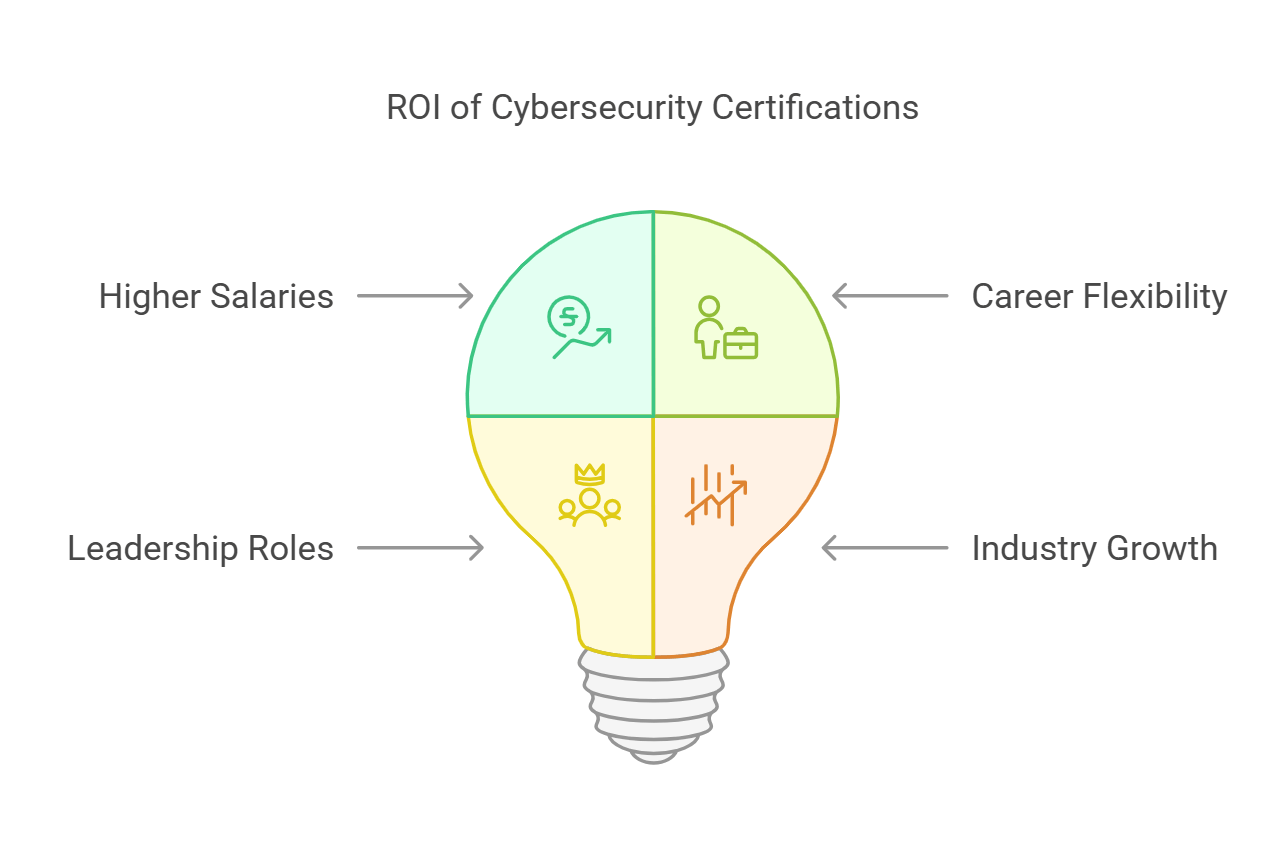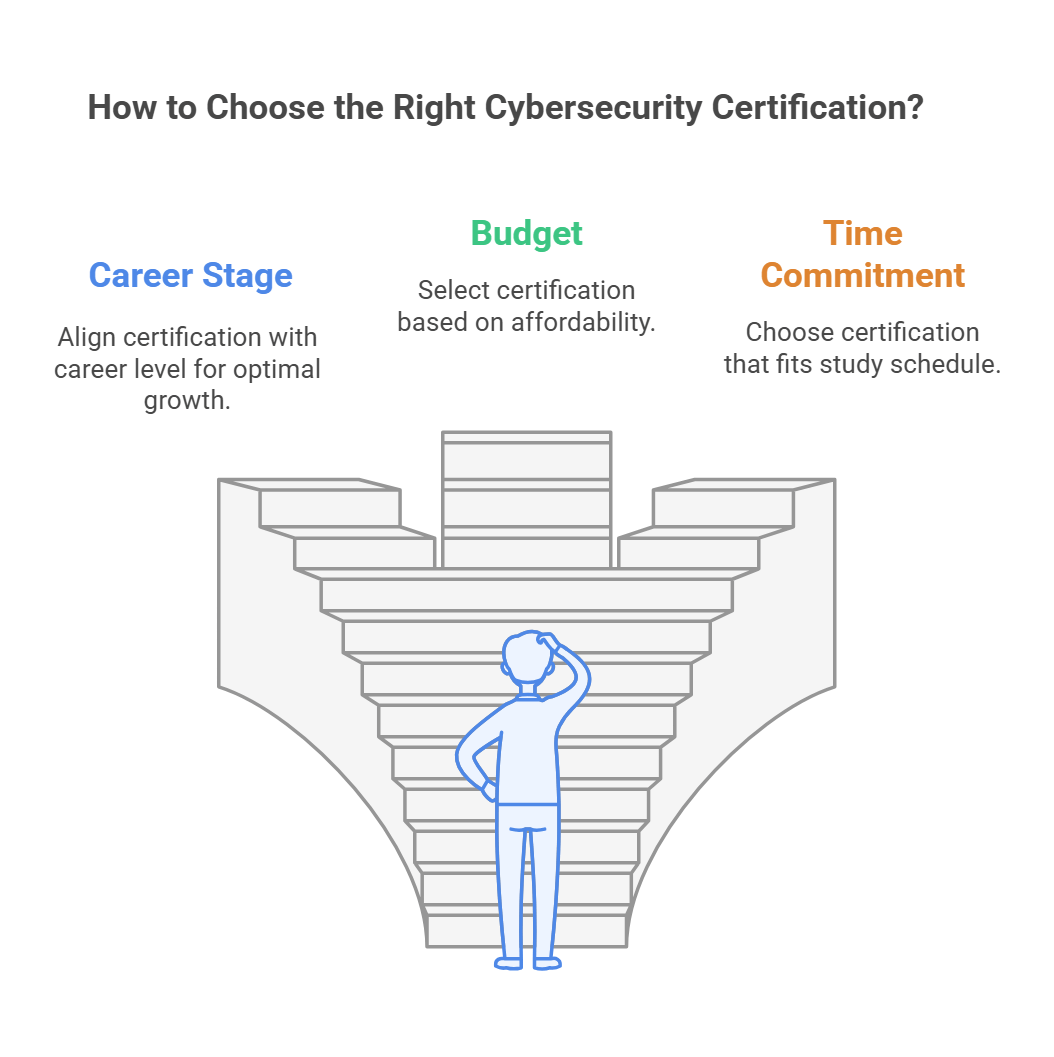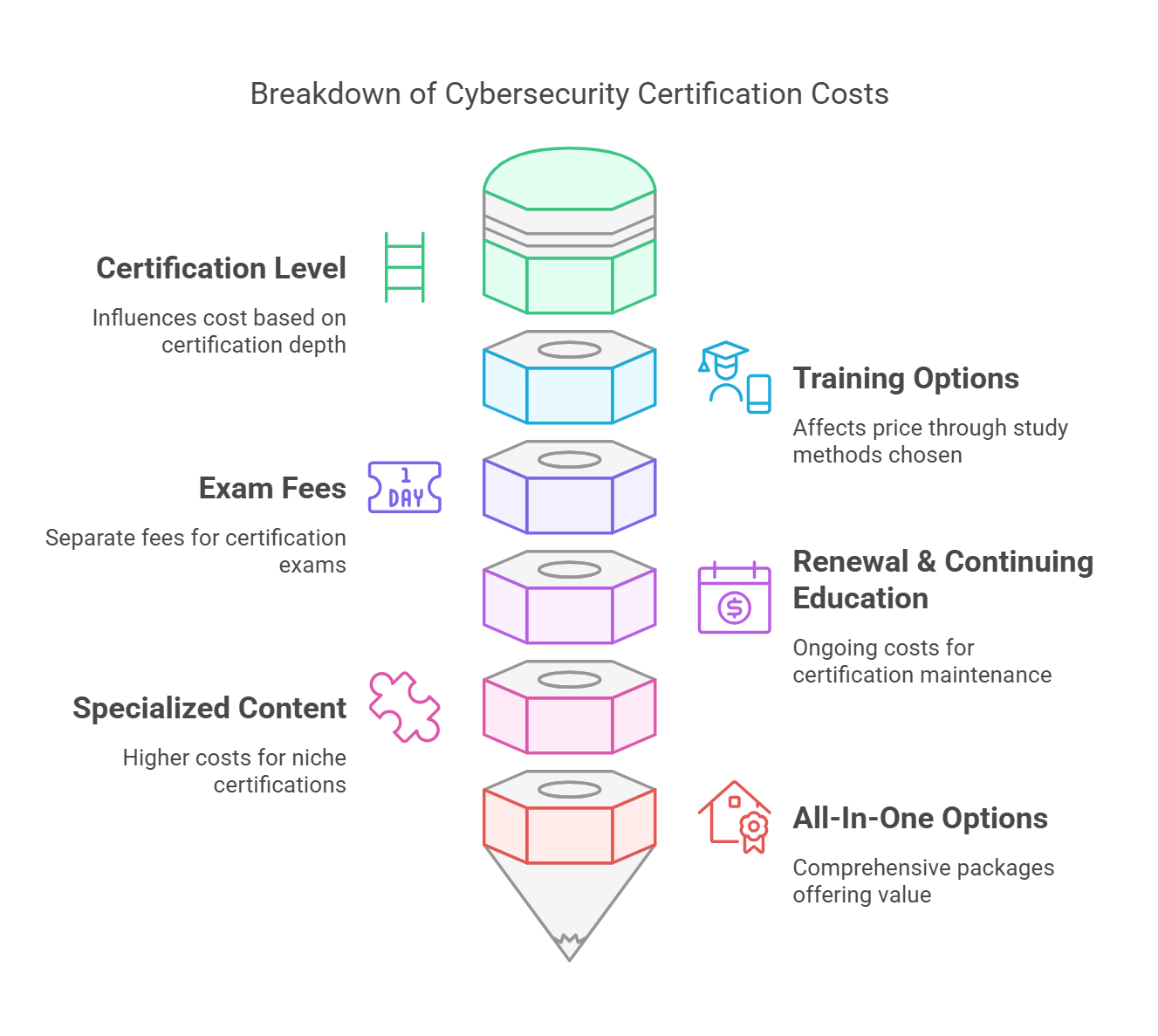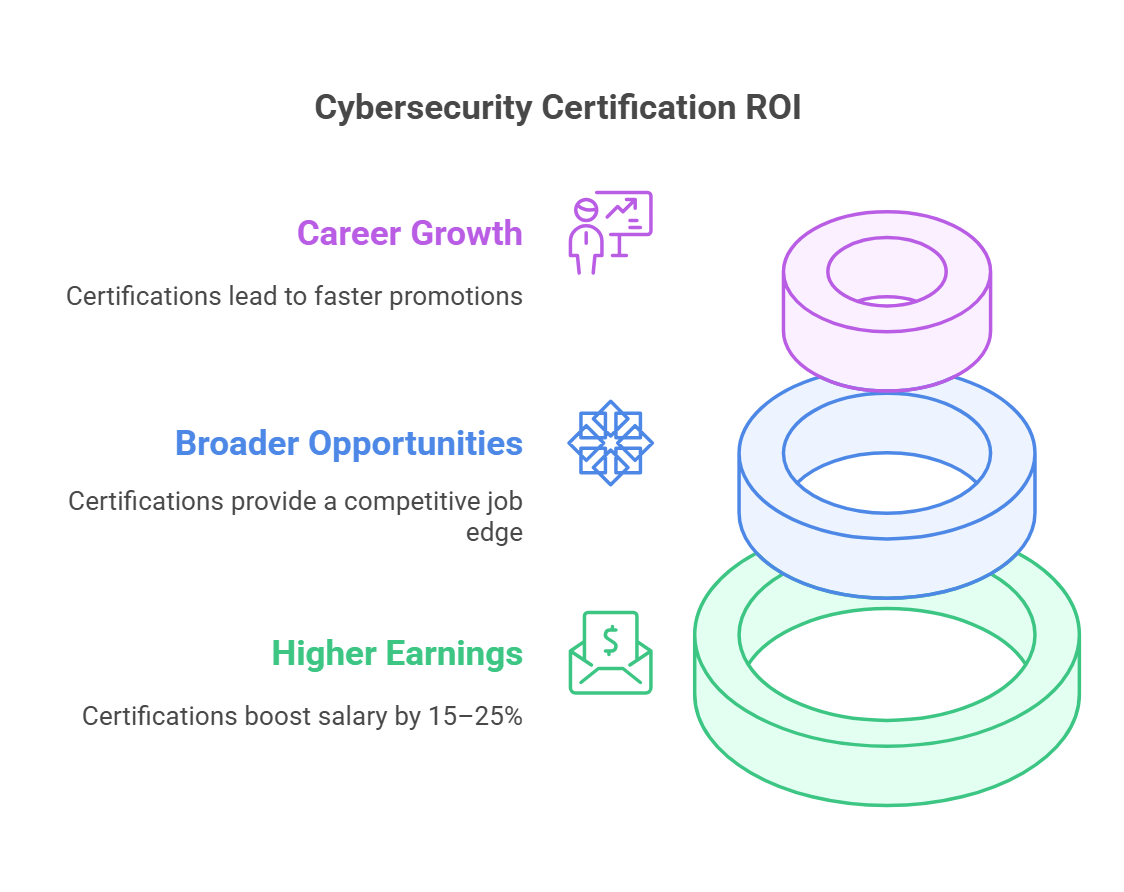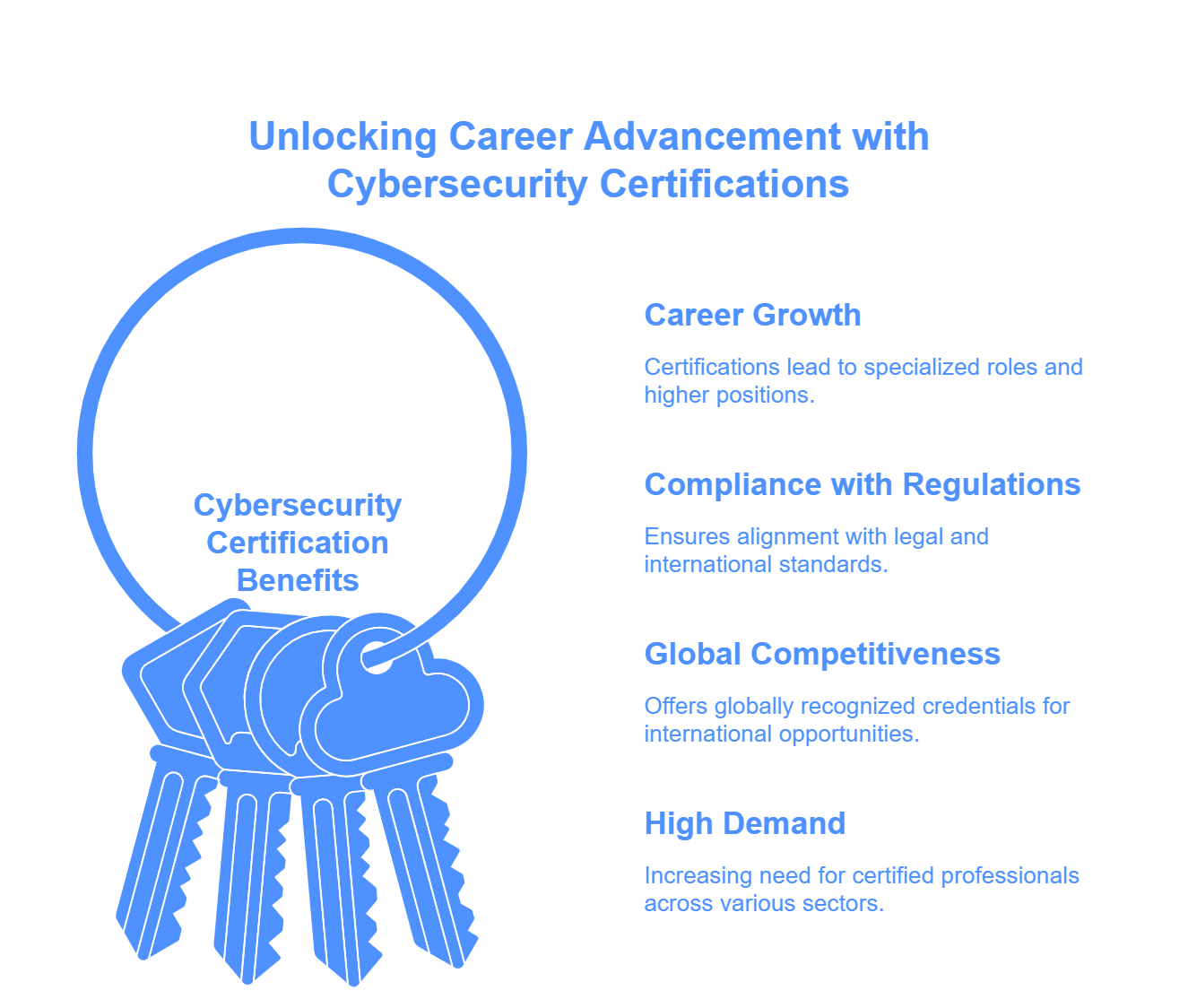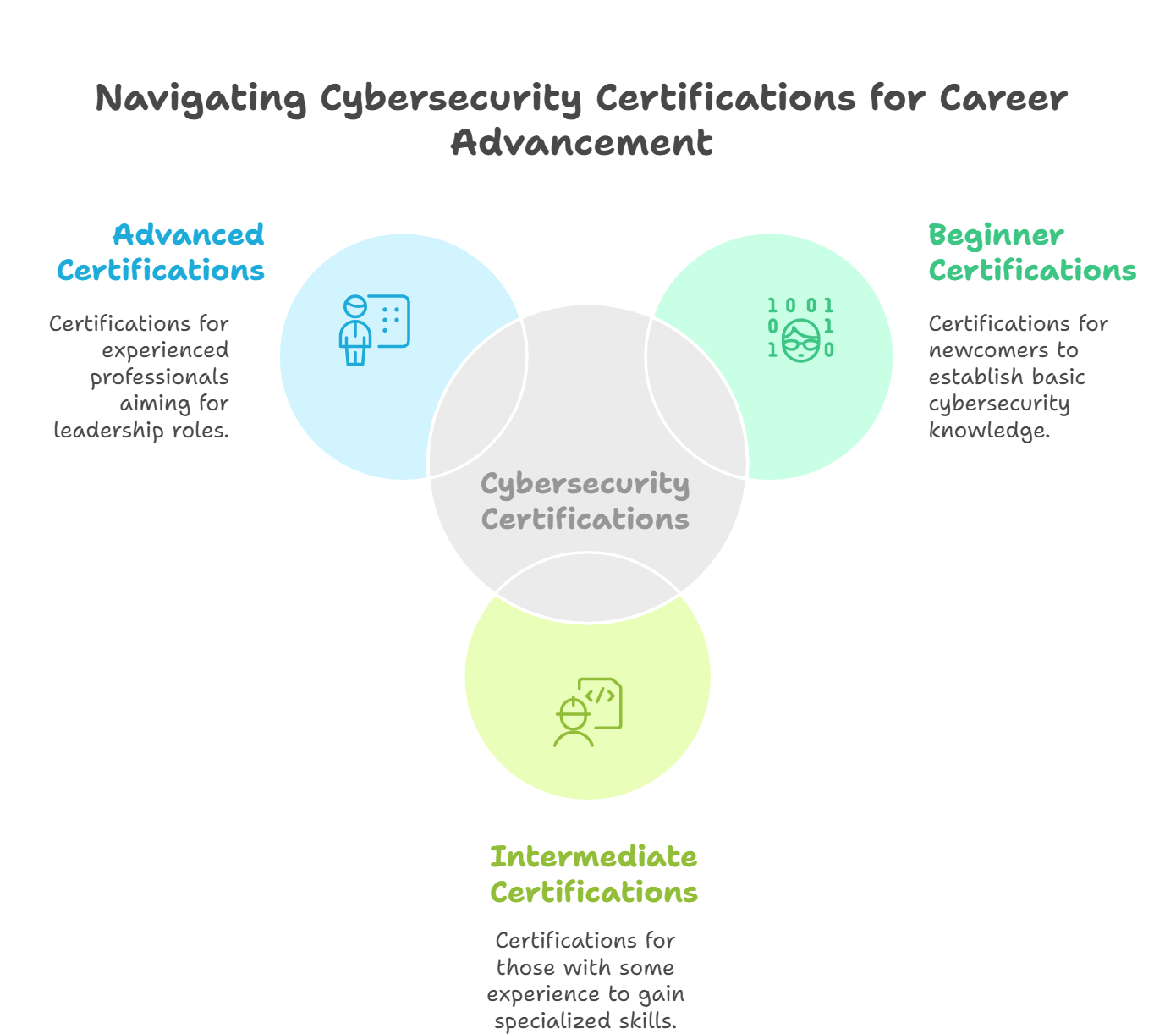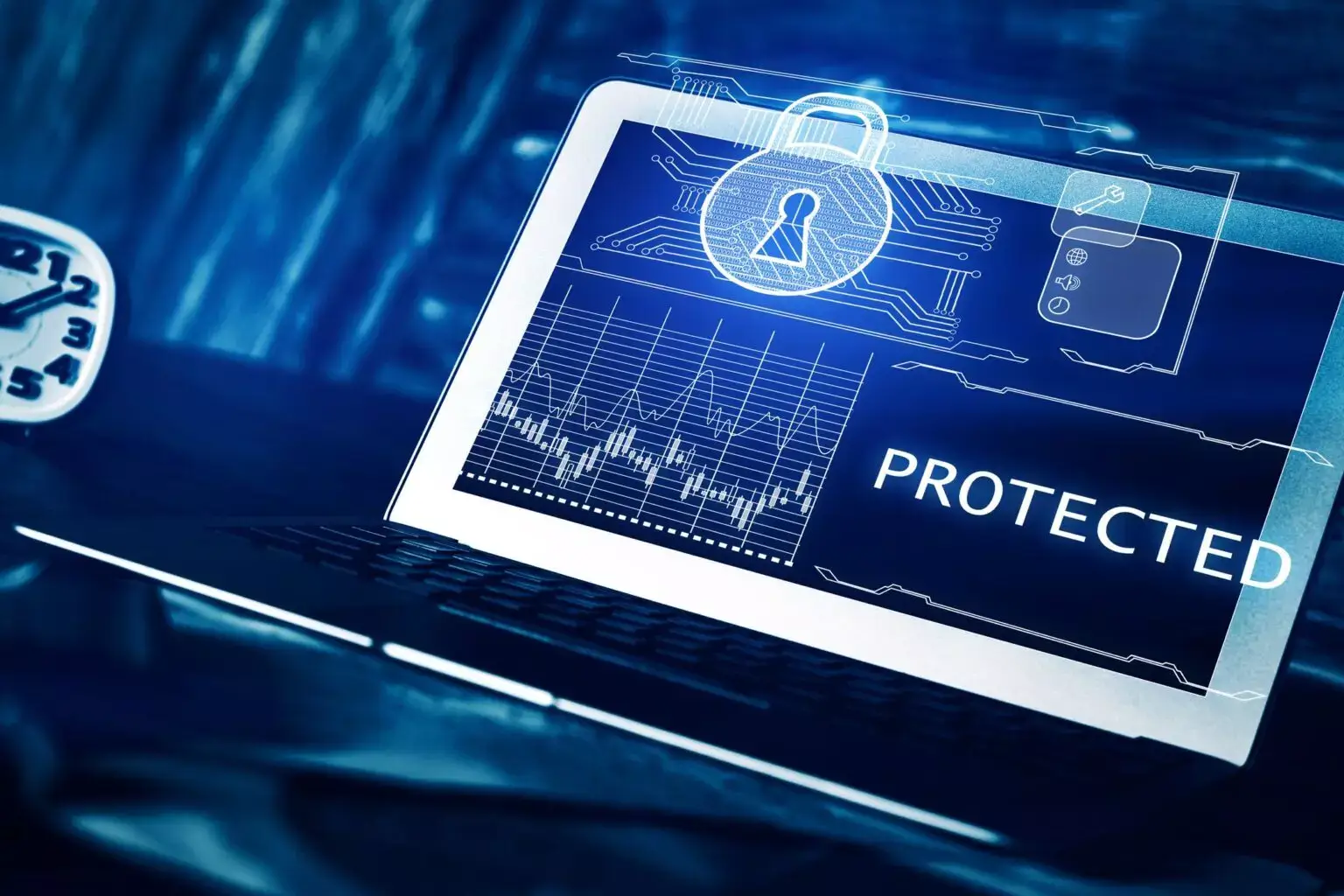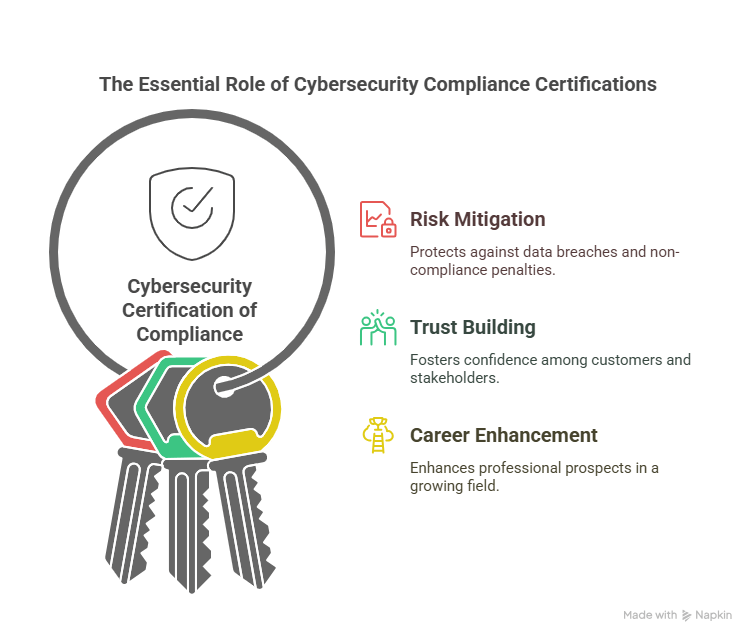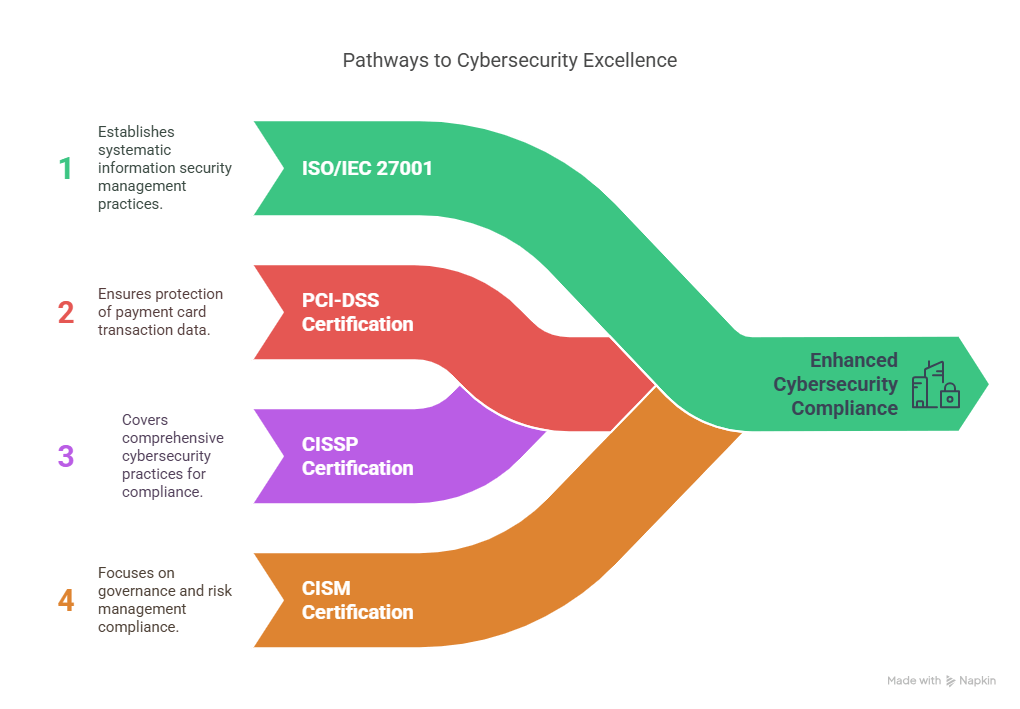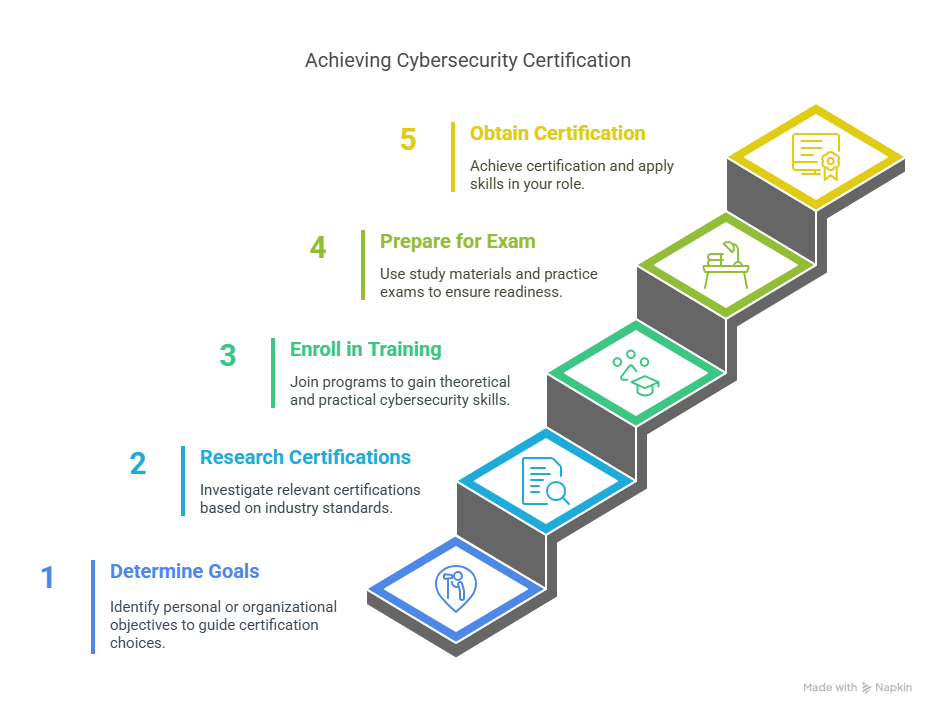Table of Contents
- The Rise of Free Cybersecurity Certifications
- Benefits of Free Cybersecurity Certification 2025
- Top Free Cybersecurity Certification 2025 Options
- What Is a Free Cybersecurity Certification 2025 Compared to Paid Programs?
- Tips for Maximizing Free Cybersecurity Certification 2025
- The Future of Cybersecurity Education
- FAQs About Google Cybersecurity Certification Reddit
Cybersecurity is one of the most in-demand fields today, and as cyber threats evolve, the need for skilled professionals has only intensified. As businesses and governments around the world ramp up their digital security, the demand for certifications to prove knowledge and skills in the field has skyrocketed. But, one major hurdle for many people is the cost of these certifications, which can range from hundreds to thousands of dollars.
The rise of free cybersecurity certifications in 2025 has been a game-changer. Many reputable platforms and organizations now offer free or low-cost certifications that allow learners to gain foundational knowledge in cybersecurity, regardless of their financial situation. Among these, Cybersecurity Certification IIT stands out as a valuable option for professionals looking to enhance their credentials. This blog dives into the top free certifications, how they can complement paid programs like ACSMI, and why free certifications can be a valuable asset to your cybersecurity career.
The Rise of Free Cybersecurity Certifications
The push for more affordable and accessible cybersecurity education has resulted in the rapid rise of free certification programs. Many tech companies and educational platforms now offer certifications at no cost to help address the global cybersecurity skills gap. These free programs aim to make cybersecurity training accessible to a broader range of individuals, helping them gain the skills needed to break into this critical industry.
The goal behind these free certifications is to democratize education, particularly in fields like cybersecurity, where a lack of skilled workers is one of the biggest challenges. Companies like Microsoft, IBM, and nonprofit organizations are stepping in to offer these opportunities, contributing to the workforce’s growth and ensuring more people have access to industry-relevant knowledge.
While free certifications do provide value, it's important to note that they typically offer foundational knowledge. They may not always go into the depth required for advanced roles or highly specialized positions, which is where paid certifications, like ACSMI or CISSP, come in.
Benefits of Free Cybersecurity Certification 2025
The value of free cybersecurity certifications in 2025 is immense, especially for individuals starting their journey in cybersecurity. Here are some key benefits that make them so attractive to both newcomers and experienced professionals:
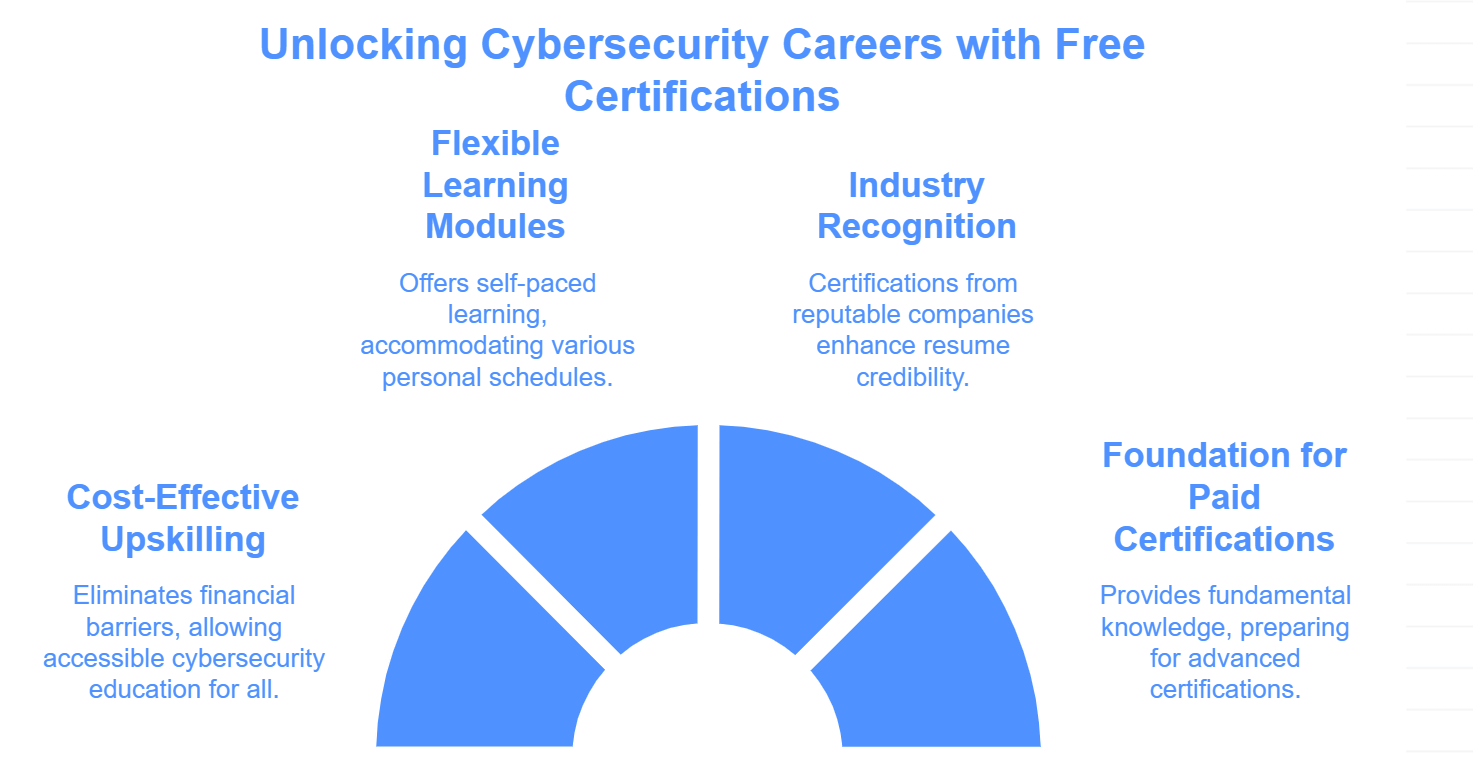
1. Cost-Effective Upskilling
Free certifications eliminate the financial barriers that often prevent individuals from pursuing career advancement. With many programs available at no cost, anyone can begin their cybersecurity education without worrying about tuition or exam fees. For those who want to enter the field but lack the resources for expensive courses, free certifications offer an accessible pathway.
This is particularly important for entry-level candidates, students, or career switchers who are just starting out. They can gain critical skills without needing to invest a significant amount upfront. Free certifications also allow individuals to gauge their interest and aptitude in cybersecurity before committing to a more significant financial investment in paid certifications.
2. Flexible Learning Modules
Most free cybersecurity certifications offer flexible learning formats, which allow students to learn at their own pace. This is ideal for those juggling other commitments such as work, family, or school. You can progress through the course materials at your convenience, revisiting concepts or skipping ahead when needed.
Self-paced learning helps reduce the pressure of traditional classroom settings, making it easier for individuals to absorb the material in a way that fits their personal schedule. Whether you're learning during your free time on weekends or dedicating evenings after work, the flexibility of free cybersecurity certifications makes them more accessible and achievable for a wide audience.
3. Industry Recognition
Although free certifications may not be as in-depth as paid programs, many are still backed by leading organizations in the tech industry. For instance, certifications from companies like IBM or Google carry weight and can enhance your resume significantly. Google’s Cybersecurity Certificate or IBM’s Cybersecurity Analyst Professional Certificate are recognized by many companies and recruiters looking for entry-level cybersecurity professionals.
This recognition can help boost your credibility and demonstrate to potential employers that you have a foundational understanding of cybersecurity principles. Additionally, these certifications can serve as stepping stones to more specialized or advanced credentials, which further enhance your career prospects.
4. Foundation for Paid Certifications
Free cybersecurity certifications are an excellent way to establish a strong foundation before pursuing more advanced, paid programs. Many free programs focus on the fundamentals of cybersecurity, such as risk management, network security, or threat detection, providing the knowledge required to tackle more specialized certifications later on.
Once you’ve completed a free certification, you may feel more confident pursuing certifications like ACSMI or CISSP, which offer deeper, hands-on training and specialized skills. The free certifications can serve as a stepping stone, allowing you to explore the field without committing financially until you're certain of your career path.
Top Free Cybersecurity Certification 2025 Options
Several platforms and companies will offer excellent free Cybersecurity Certification IBM in 2025. These certifications span a variety of topics, from network security to ethical hacking and beyond, ensuring that there is something for everyone. Below are some of the top free certifications to consider:
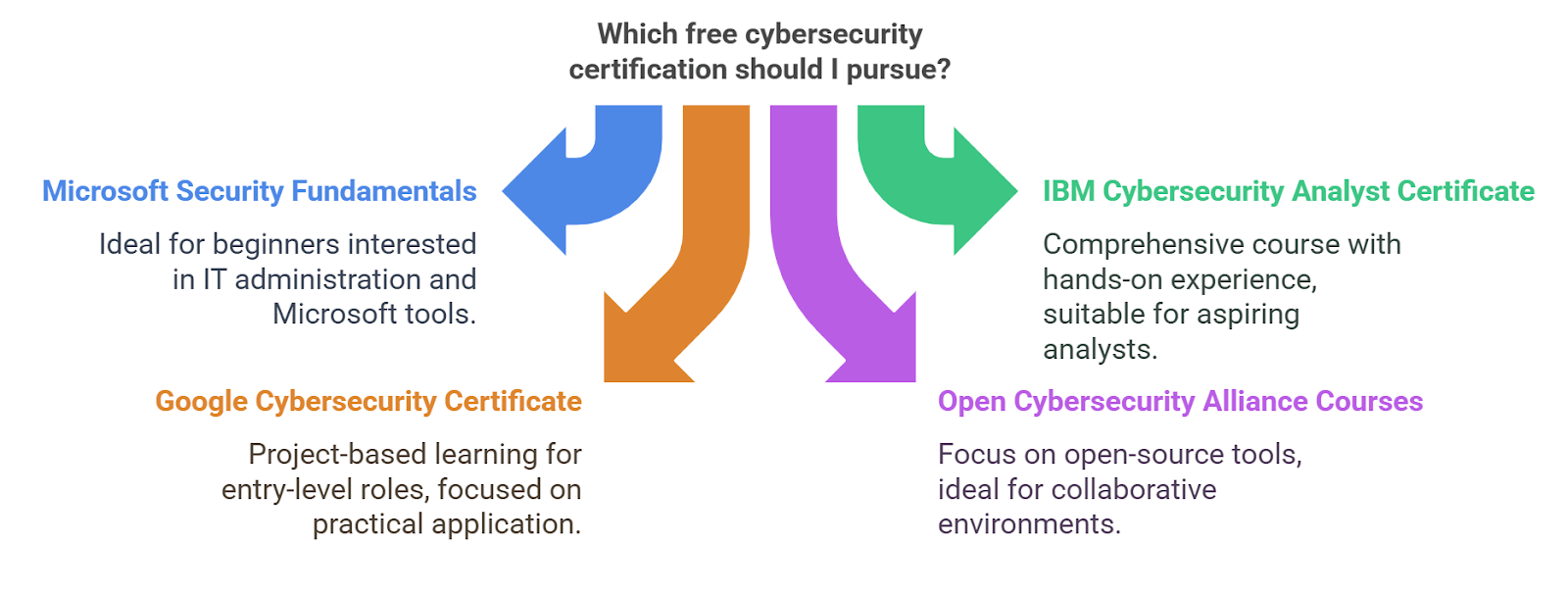
1. Microsoft Security Fundamentals
Microsoft offers a free Security Fundamentals certification that provides an introduction to essential cybersecurity principles. This certification covers topics such as identity access management, security in Microsoft environments, and risk management, providing learners with a broad understanding of cybersecurity in business settings.
This certification is ideal for beginners, especially those interested in IT administration or working with Microsoft tools. As one of the most recognized names in tech, Microsoft’s certification carries significant value in many job markets.
2. IBM Cybersecurity Analyst Professional Certificate
Offered through Coursera, the IBM Cybersecurity Analyst Professional Certificate is a highly regarded free certification program. This comprehensive course teaches learners how to detect and protect against cybersecurity threats, manage risks, and understand the various security tools used in the industry. It also includes practical labs and real-world projects, which provide hands-on experience that is crucial for any cybersecurity professional.
This certification is suitable for those looking to step into roles such as cybersecurity analyst or IT security administrator. It is also beneficial for those who want to understand compliance frameworks and endpoint protection.
3. Google Cybersecurity Certificate via SkillsBoost
Google has teamed up with SkillsBoost to offer a Cybersecurity Certificate designed for beginners. This certification covers essential topics like threat mitigation, incident response, and compliance frameworks. It’s specifically aimed at preparing individuals for entry-level roles like SOC Analyst or IT Security Administrator.
What sets this certification apart is its project-based learning approach, allowing learners to apply their knowledge in practical, real-world scenarios. Google’s reputation adds significant value to this certificate, making it a solid starting point for cybersecurity professionals.
4. Open Cybersecurity Alliance (OCA) Courses
The Open Cybersecurity Alliance (OCA) offers a variety of free courses aimed at providing a strong foundation in cybersecurity. These courses focus on open-source security tools and frameworks that are becoming increasingly important in today’s complex IT environments.
By using open-source tools, these courses prepare learners to work in environments that require collaboration and flexibility. The courses are ideal for professionals who want to understand modern cybersecurity tools and frameworks.
5. ACSMI Free Modules Preview
While ACSMI is a paid platform, it offers free access to some modules, giving learners a sneak peek into its extensive catalog of over 400 modules. These free modules are ideal for anyone considering pursuing the full ACSMI certification program, as they allow learners to explore the program’s structure and content before committing to the entire curriculum.
The ACSMI free modules preview is an excellent way for individuals to test the waters and see if the platform’s in-depth approach to cybersecurity education aligns with their career goals.
What Is a Free Cybersecurity Certification 2025 Compared to Paid Programs?
Free cybersecurity certifications are a great way to get started in the field, but they do have limitations. While they offer valuable foundational knowledge, they typically lack the in-depth training and hands-on experience provided by paid programs. For example, the ACSMI Certification, which includes over 400 specialized modules, offers a far more detailed and advanced curriculum designed to prepare learners for high-stakes environments and senior roles in cybersecurity.
Key differences:
-
Depth of Content: Free programs are often introductory, while paid programs like ACSMI focus on more specialized topics such as AI-driven cybersecurity, ethical hacking, and advanced cryptography.
-
Hands-On Training: Paid certifications tend to provide more comprehensive labs, real-world projects, and extensive simulations, which are often missing from free programs.
-
Recognition: Paid certifications like ACSMI or CISSP are generally more recognized by employers, particularly for higher-level roles.
Free certifications are fantastic for building your foundation and gaining initial skills, but for long-term career growth, transitioning to paid certifications may be necessary.
Tips for Maximizing Free Cybersecurity Certification 2025
To make the most of free certifications, here are some strategies you can implement:
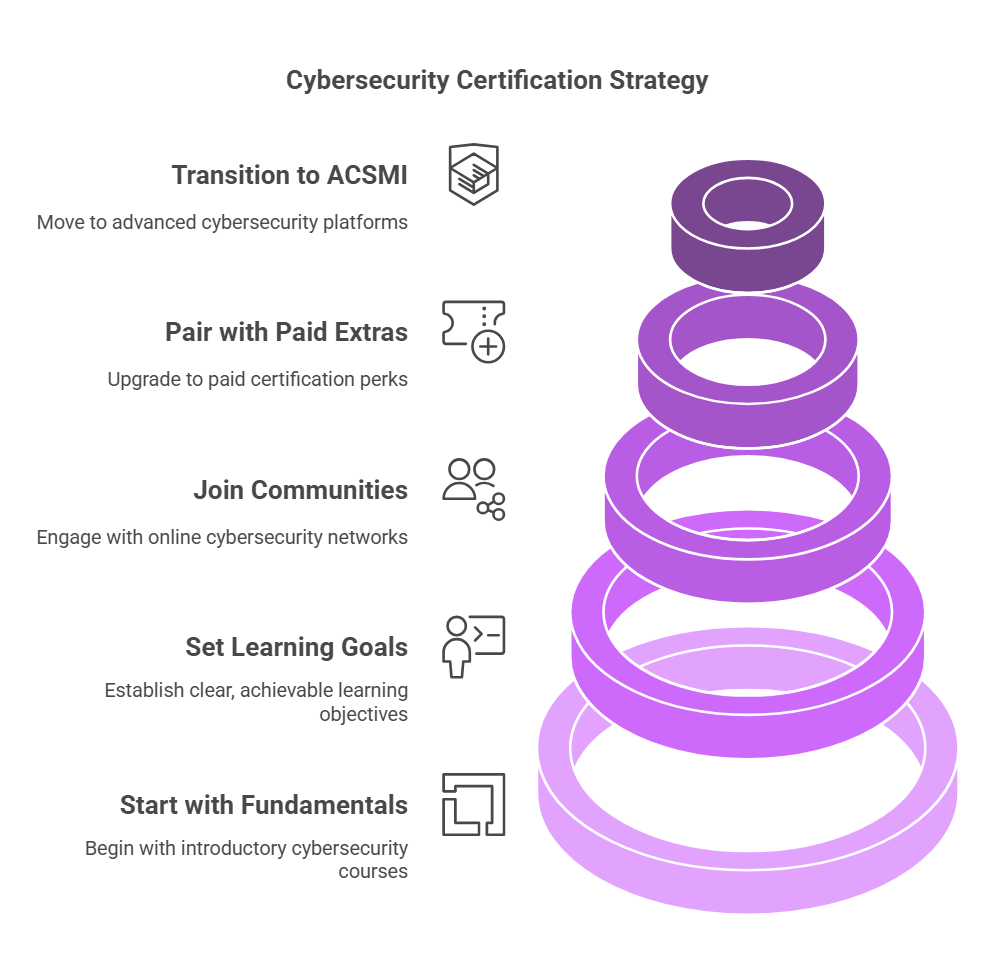
Start with Fundamentals
If you're a beginner, begin with introductory courses like Microsoft Security Fundamentals or Google Cybersecurity Certificate. These certifications lay a strong foundation and help you grasp essential concepts before moving on to more specialized topics.
Set Learning Goals
Because many free certifications offer flexible, self-paced learning, it’s easy to procrastinate. Set clear learning goals to ensure that you stay on track. For example, aim to complete one module per week or finish a certification within a set number of months. This will help maintain your motivation and ensure steady progress.
Join Cybersecurity Communities
Engage with online communities like Reddit’s r/cybersecurity or LinkedIn groups dedicated to cybersecurity. These communities often share valuable advice, study resources, and job opportunities that can accelerate your learning. Networking with professionals already in the field can also provide useful insights into which certifications are most valuable.
Pair Free Options with Paid Extras
Some free certifications offer additional paid perks, such as professional certificates or graded assessments. When possible, consider upgrading to these paid options to gain more value from the course. This can give you more credibility when applying for jobs or promotions.
Transition to Paid Expertise with ACSMI
Once you’ve built your foundation with free certifications, consider transitioning to advanced paid platforms like ACSMI. ACSMI offers in-depth modules that prepare you for mid-to-senior level roles in cybersecurity, making it an excellent follow-up to free certifications.
The Future of Cybersecurity Education
Cybersecurity is an ever-evolving field, and the need for continuous education is paramount. As the world faces increasingly sophisticated cyber threats, professionals must stay ahead by constantly updating their knowledge and skills. Free certifications are an excellent starting point, but transitioning to more advanced paid programs ensures long-term career success.
Consider platforms like ACSMI, which offer a blend of foundational and advanced training, providing everything from introductory courses to high-level strategic knowledge.
FAQs About Google Cybersecurity Certification Reddit
Are free cybersecurity certifications worth it?
Yes! They offer an excellent foundation for beginners and help professionals stay updated without significant investment.
Can I get a job with only free certifications?
While free certifications demonstrate initiative, advanced certifications like ACSMI or CISSP are still preferred for high-paying roles.
Which free certification is the best for beginners?
Microsoft Security Fundamentals is an excellent starting point, offering essential cybersecurity knowledge in an easy-to-understand format.
How do free programs compare to paid options like ACSMI?
Free programs offer foundational knowledge, while paid certifications like ACSMI provide specialized, hands-on training for real-world roles.
Is ACSMI’s program suitable for beginners?
Yes! ACSMI’s modular approach includes beginner-friendly courses, allowing learners to progress at their own pace.
